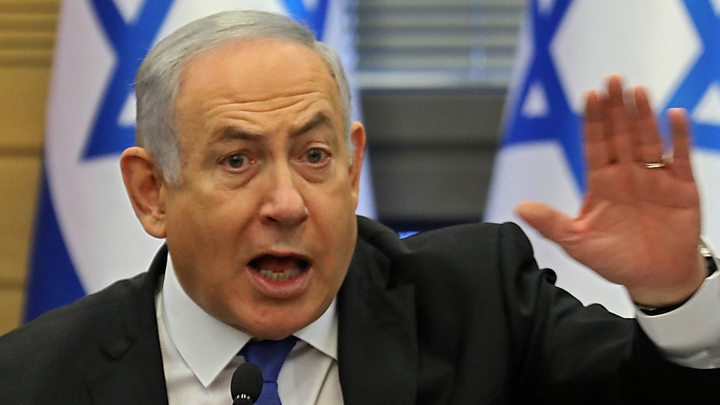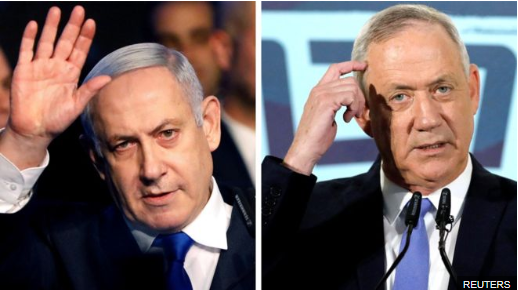sraelis are voting in an unprecedented third general election in less than a year, with the prime minister fighting for his political survival.
\
Neither Benjamin Netanyahu nor his main challenger, Benny Gantz, were able to put together majority coalitions following the last two elections.
The final opinion polls suggested the latest round is too close to call.
Mr Netanyahu is seeking re-election two weeks before he is due to stand trial on corruption charges.
He has been ordered to appear in court in Jerusalem on 17 March to hear the indictment against him.
The prime minister was charged in November with bribery, fraud and breach of trust in connection with three separate cases. He has strongly denied any wrongdoing, saying he is the victim of a politically motivated “witch hunt”.
Opponents have called on Mr Netanyahu to step down. But even if convicted, he would not be required to do so until the appeals process was exhausted.
Mr Netanyahu, 70, is Israel’s longest-serving prime minister, having been in office from 1996 to 1999 and again from 2009. In December, he comfortably won a primary election for leadership of his right-wing Likud party.
His main opponent in the general election is Benny Gantz, 60, a retired general who served as chief of staff of the Israel Defense Forces (IDF) before entering politics to lead the centrist Blue and White party.
Weeks of campaigning have failed to budge the sense of grinding political stalemate in Israel.
Voters seem entrenched. The polls suggest neither Mr Netanyahu nor Mr Gantz are sure of a clear path to victory. Again.
Political lightning struck twice on the same day during the campaign, as Trump’s peace plan was announced and a corruption trial was set for Mr Netanyahu.
But Israelis seemed unfazed by the thunder. They didn’t need to vote three times to make up their minds about Mr Netanyahu and many see the Trump plan as more electoral politics than a serious attempt at resolving an intractable conflict.
Blue and White won one more seat than Likud in the last election in September, but neither Mr Netanyahu or Mr Gantz were able to secure enough support from other parties to enable them to control a majority in the 120-seat parliament.
Israel’s political system is based on a form of proportional representation, with parties winning seats based on the number of votes they receive rather than which party gets the most in a particular constituency. This means governments have always been coalitions, sometimes fractious
and short-lived.

Mr Netanyahu’s previous coalition lasted for four years before an early election was held in April 2019.
In those polls, Likud and Blue and White won the same number of seats. But Mr Netanyahu dissolved parliament after his coalition talks failed, denying Mr Gantz a chance to try form a government himself.
It is unclear what might happen if there is no outright winner again.
Does this election matter?
Despite complaints among voters of election fatigue, Monday’s could be one of the most important for years.
If Blue and White wins, it will bring to an end more than 10 years of rule by Likud, which advocates a right-wing nationalist agenda.



